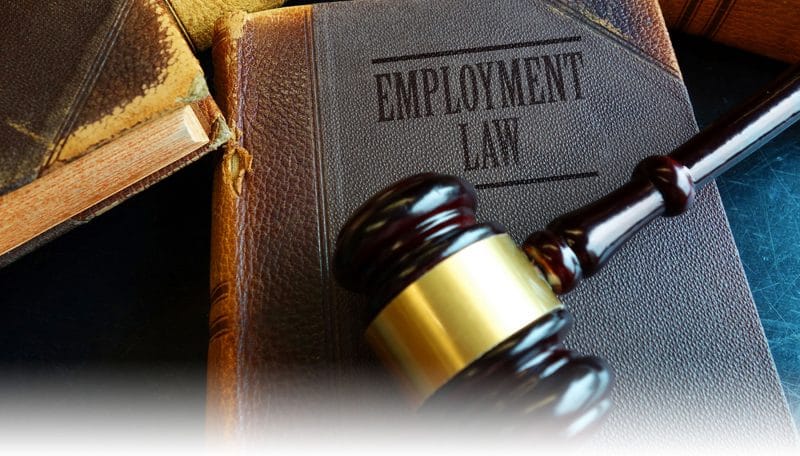If your unhappy about any aspects of the service you have received or about the bill it is an important that you let us know as soon as possible. We trust that we would be able to resolve any issues that you are unhappy with between ourselves. You should initially write to the Principal Solicitor at LawLex Solicitors detailing the nature of your grievance. He will be then responding to you within reasonable times with a view to resolving the dispute to a satisfactory conclusion.
Once in receipt of your complaint, we will ensure that it is handled promptly, fairly, openly and effectively. We will also inform you in writing how the complaint will be handled and within what time we will respond to you. We confirm that the firm has a complain procedure, a copy of which is available on a request.
We hope that you will use our procedure. However, if you would rather not to do so or are unhappy with the outcome you may take up your complaint with the legal ombudsman who will deal with complaints from Clients about the services provided by the firm or its employees. The legal ombudsman cannot consider a complaint unless it has been investigated by the firm. Complaints to the legal ombudsman have a time limit of 12 months from the date of determination of the firms’ internal investigation or 12 months from the date of which a complaint should reasonably have known that there was a reason for making a complaint. The ombudsman has discretion to extend time limits in exceptional circumstances.
The contact detail for the legal ombudsman are
Legal OmbudsmanPO BOX 6806
Wolverhampton
WVI 9WJ
Telephone: 0300 555 0333
Email: enquiries@legatombudsrnan.org.uk
Web: www.legatombudsrnan.org.uk
Although we strive for excellence in all we do, there is still a possibility that a client may be dissatisfied with our performance. Our complaints policy is intended to make clear our approach to client complaints as well as being designed to deal fairly, effectively and swiftly with any complaint should it arise, whilst helping us retain the client’s goodwill and continuing relationship with the Practice.
We will handle your complaints and will report complaints data and trends to the Risk Manager for inclusion in the annual review of risk management data.
What Is Not a Complaint?
Internally we regard any expression of client dissatisfaction as serious, to the extent that the Client Care Officer should be told about it. However, this does not mean the full complaints procedure is to be followed in such instances.
Examples might be: “Your solicitors are always too expensive”, or “I don’t understand why everything takes so long”.
By reporting minor grumbles that you have been able to deal with satisfactorily yourself, you help the Designated Complaints Handler and Risk Manager maintain an accurate risk profile for the Practice and to anticipate trends in client dissatisfaction. However, these are not regarded by the Practice as complaints.
What Is a Complaint
When:
- A client requests a copy of our Complaints Procedure in order to register a complaint
- A complaint in writing is received, whether by letter, email, fax or other means,
- A complaint is made to the Designated Complaints Handler, in person or by phoneor
- A fee earner is unable, on his or her own, to satisfy a client who complains in any other way,
The Practice regards this as a complaint, and the full Complaints Procedure must be followed step by step.
Complaints Policy
Despite all our best efforts to delight our clients a complaint, whether or not justified, may arise.
Our policy is to resolve client complaints promptly, fairly, and effectively because:
- Clients are entitled to expect this from us
- Our responsiveness to a client’s complaint may well defuse an otherwise explosive situation
- There will be a better chance of retaining the client
- It saves us spending time and money on dealing with an escalating complaint
- It reduces the chances of complaints reaching the Legal Ombudsman
- It reduces the likelihood of claims against the practice that could harm our reputation as well as proving costly
For these reasons we have a written Complaints Procedure that must be followed whenever a client complaint is received.
Formal Procedure
Written Client Complaints Procedure
The Practice has a written Client Complaints Procedure document to be made available to clients on request. It explains how their complaint will be handled, including timescales for an initial and substantive response. This procedure must be followed whenever a client complaint arises.
At the Outset The client must be told at the outset of the matter that, in the event of a problem, they are entitled to complain.
Fee earner Response
Whenever a client complains do not be defensive but try to see the client’s point of view. It may just be a misunderstanding.
If you cannot resolve the issue yourself:
- Ask the client to contact our Designated Complaints Handler or ask the Designated Complaints Handler to contact the client
- Politely offer to send the client a copy of our written Complaints Procedure
- Immediately report the situation to the Designated Complaints Handler
- Copy the report to the Risk Manager
Designated Complaints Handler’s Response
If the client is happy to telephone the Client Care Officer, it may be possible to resolve things over the phone. If it is not possible to find a solution during the phone call, the Designated Complaints Handler will:
- Ask the client to send their complaint in writing or invite the client to a meeting to discuss the complaint
- Explain that we have a written Complaints Procedure, a copy of which will be sent straight away
- Send a letter together with the Practice’s Complaints Procedure to the client straight away
The procedure sent to the client explains how the complaint will be handled together with time scales for the various stages in the complaint handling process, including the provision of an initial response and a substantive response.
From this point on the Client Care Officer will follow the written Complaints Procedure, taking care to meet the deadlines promised in the procedure. In doing so the Client Care Officer will identify the cause of the problem about which the client has complained, offer any appropriate redress and, together with the Risk Manager and Quality Executive, seek to improve any procedures that the complaint indicates are unsatisfactory.
The Designated Complaints Handler will keep full records of the complaint, including a log of progress and all correspondence.
The Designated Complaints Handler will recommend to the Quality Executive any changes that will correct unsatisfactory procedures highlighted by the complainant. As appropriate, the fee earner against whom the complaint was made may be provided with support and training, required to adopt new ways of working or subject to disciplinary proceedings.
Designated Complaints Handler’s Further Responsibilities
The Designated Complaints Handler will:
- Ensure that the complaints procedure is kept up to date and continues to meet the needs of clients, the needs of the business and the requirements of the SRA Standards and Regulations
- Follow the Practice’s complaints procedure when dealing with any complaint
- Record all complaints centrally, and maintain up to date records of the progress of the complaints
If a complaint indicates that any of the Practice’s procedures could be improved, the Designated Complaints Handler will ask the Quality Executive to amend them so as to improve client service and reduce the likelihood of similar complaints in future.
The Designated Complaints Handler will review client complaints at least once a year and provide a report including an analysis of types of complaint, their causes and remedies found, together with identifiable trends. This report will form part of the Risk Manager’s overall annual review of risk data.
Designated Complaints Handler’s Authority
The Designated Complaints Handler’s judgment will be accepted by the Practice in respect of the validity of the complaint, the responses the Practice makes, and the remedies offered.
Complaints about the Designated Complaints Handler
Should a complaint be made about the Designated Complaints Handler the client will be asked to contact the Deputy Designated Complaints Handler, who will be responsible for handling the complaint according to this procedure.
Responsibility
Responsibility for the Practice’s complaints procedure, including a documented review at least once a year to:
- Ensure that it continues to meet the requirements of the Practice, its clients and regulators
- Verify that it is in effective operation across the practice.
How to Complain
Clients have a right to know how to make a complaint and that it will be dealt with promptly, fairly and effectively.
The client must be told, in writing, at the outset:
- That, in the event of a problem, the client is entitled to complain
- To whom the client should complain – our Designated Complaints Handler or Deputy Designated Complaints Handler
- That this could include a complaint about the Practice’s bill
- That there may also be a right to object to the bill by making a complaint to the Legal Ombudsman, and/or by applying to the court for an assessment of the bill under Part III of the Solicitors Act 1974
- That if all or part of a bill remains unpaid the Practice may be entitled to charge interest
- That a copy of our written Complaints Procedure is available on request
- The role of the Legal Ombudsman
- Contact details for the Legal Ombudsman
The Designated Officer
Ruslan Ughrelidze
Solicitor of England and Wales
0203 432 7706
info@lawlex.co.uk








